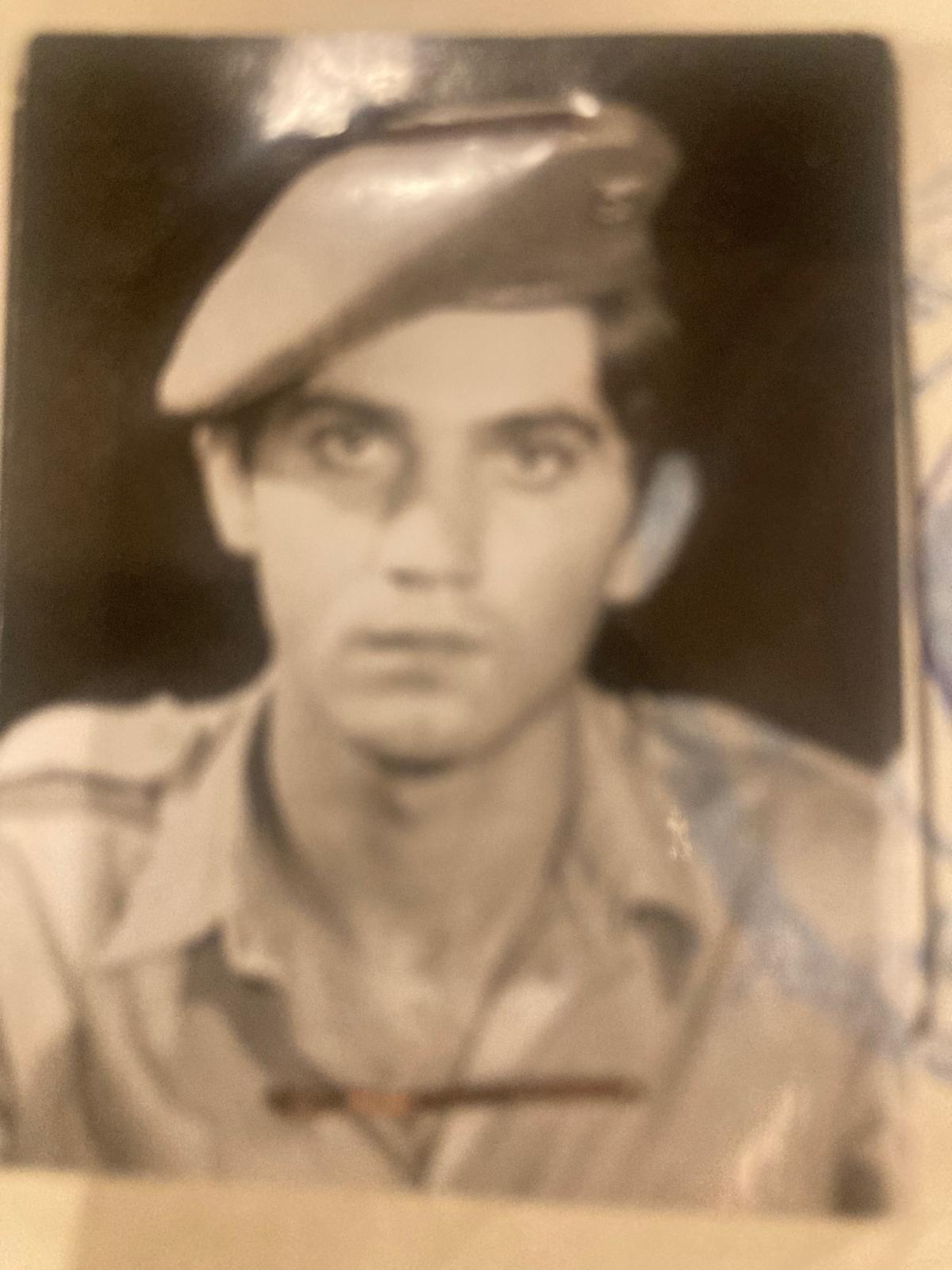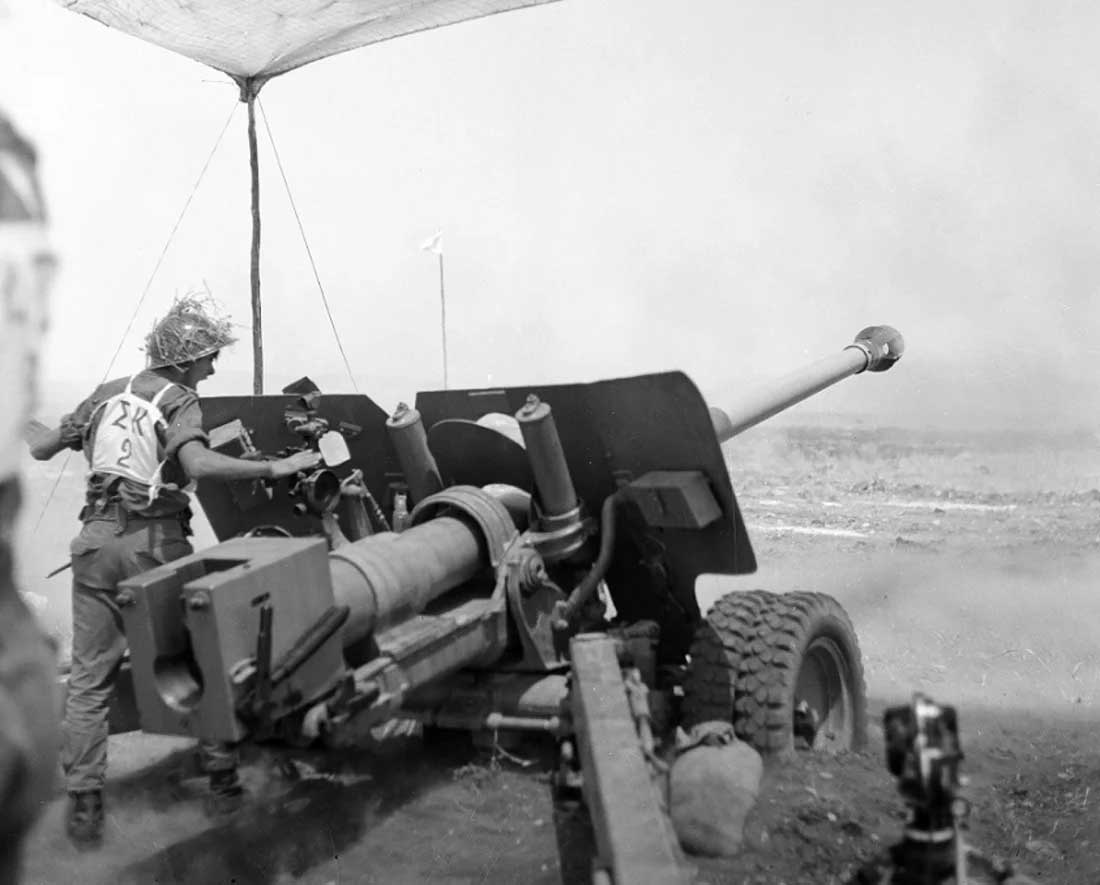The final part of the memoirs of Kratinos Pyliotis, the 19-year-old National Guardsman who served as a sergeant in an anti-aircraft unit in 1974, covers the second stage of the Turkish invasion on August 14, 50 years ago
IN the week of the second Turkish offensive that began in the morning of August 14, the Rolling Stones were number 10 in the British charts with ‘It’s Only Rock and Roll’. I still wanted badly to see them live. Mud, however, were number 7 with ‘Rocket’ and that was an omen for what was to come. Number 1 was ‘When Will I See You Again’ by the Three Degree that left me wondering if there was some hidden meaning in the title. Could I sing it to friends, family or peace-loving Turks?
Very early morning on August 14, we were glued to Rik radio to learn what was going on in the Geneva negotiations and learnt they had broken down. It was a matter of time before the new assault and the Turks obliged with haste. We could hear the bombs dropped by planes exploding but not near where we were. Thankfully no planes thought it wise to approach Tymbou, realising that their fate would be death, with my unit guarding the area.
Rik, meanwhile, kept reassuring us that we were winning, and the Turkish invaders were being repelled, but it also reported that our troops were being ‘smoothly redeployed’ (anadiplononte omala). It didn’t sound good for our side, and all five of us sensed that we were taking a hammering. At about noon, we heard in the distance the unmistakable sound of tanks. Our first thought, as the sound was coming from Nicosia, was that rumours Greece would come to our rescue were proving correct.
Our second, third and all subsequent thoughts was, what if these were Turkish tanks advancing eastwards? We had to seek instruction from [our immediate superior] Captain Roussos. The wireless operator with a non-functioning wireless decided to run to base this time to get orders, but as he was running back there was a look on his face that did not bode well. “There’s no-one there, they all left,” he said.
Captain Roussos and the artillery and other anti-aircraft units vanished without even bothering to tell us. Based on the fact that they did a runner, we concluded the approaching tanks, now getting louder, were not friendly and if they found us, we would be ready for burial in our personal trenches. We drove off in our World War II truck in the direction of Nicosia.
A few hundred metres down the road, with the noise from the tanks uncomfortably close, I, as the leader and saviour of men, said we should take the first dirt track through the fields on the left and go wherever the track takes us. What a decision! What a military genius. The noise was indeed Turkish tanks heading to Famagusta, and I am here today not thanks to Captain Roussos but thanks to the sheer luck of not running into the advancing Mehmedjik.
An hour or so later, maybe longer, through dirt tracks and fields we found ourselves near Dali. Saved.

We finally arrive in Dali. Driving our truck through the village we were greeted with applause and ‘bravos’ from the locals. Felt like real heroes even though we knew we were running in retreat. The applause came to an abrupt end when we stopped towards the exit of the village to decide where to go and what to do.
We had no clue where the battalion had run to (in orderly retreat, of course, without letting us know). The locals were quick to tell us, quite rightly, to sod off and get out of their village so it would not become a target for Turkish aircraft.
The only problem was that we were almost out of petrol, running on empty, so we made our way to the petrol station at the edge of the village to refuel. None of us had any money so we asked the nice station manager for fuel in return for an IOU which we assured him would be honoured at some point. He did not see things our way.
He left us with no option but to park the truck in his station, telling him we would fight our battles from there should a Turkish aircraft appear. You have never seen trademark Cypriot obstinacy melt away so quickly. He filled the truck up with beautiful diesel and we went searching for our unit.
It did not take long for someone to tell us to head to nearby Ayia Varvara, where we stayed without firing another bullet until the ceasefire was announced on August 16. We were back in the loving care of [commanding officer] Major Gotsis.
I met Captain Roussos there too – the officer who wanted to had wanted execute me for the minor mishap with the UN and subsequently retreated from Mia Milia without informing my unit. In an act of total defiance I challenged him as to who had betrayed whom and who deserved execution. Much to my surprise he agreed that we had indeed all been betrayed.
My final act of the war came weeks after the fighting was over. Bored witless on a hillside outside Ayia Varvara, SK, a mean bouzouki player, and I decided to go for shooting practice. Cyprus was awash with guns and ammo, taken from the presidential guard. I had a semi-automatic Chinese gun and he had an American rifle.
We trekked about a kilometre away from the hillside, which was a kilometre away from our army base so as not to be heard and took shots at bottles. Forgetting that my gun was a semi-automatic, I almost shot SK by keeping my finger on the trigger when he was in the target area. I think he may still be swearing at me.
On returning to the truck we could see a huge commotion at the base, which was preparing to defend the motherland. Our shooting had been heard and the officers thought the Turks were attacking again. We played dumb, hid the guns and never told anyone.
Having survived the war, both my life’s ambitions – to see Spurs and the Rolling Stones live – have since fulfilled.”
The two earlier instalments of Kratinos Pyliotis’ memoirs from the 1974 invasion are The day my captain threatened to shoot me and ‘I’ll never see the Stones live’







Click here to change your cookie preferences